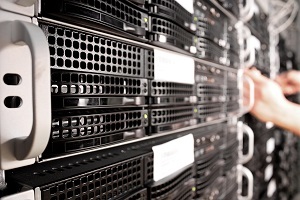 Big Tech
Big Tech
If you're into Unix and have been following the newsfeeds over the last decade, it's likely that you've heard that the big technology companies have been slowly but surely giving up on their own offerings of Unix and leaning towards Linux. According to a 2018 report from Gartner written by Matthew Cheung, AIX and HP-UX were both declining in market share in 2017. In an article in Network World by Andy Patrizio in September of 2017, Oracle released a couple thousand of its Solaris and Sparc engineers. That tells the rest of the world that Oracle has no plans to continue the expansion of Solaris in the enterprise. Other Unix variants such as Tru64 and Ultrix by DEC were discontinued years ago. Xinuos' offerings (formerly owned by SCO) of OpenServer and UnixWare may be still hanging on but they haven't had any updates in several years. Irix has been gone for what seems to be forever.
So where does that leave the rest of the field? I'm referring to other popular ones such as the BSDs: NetBSD, OpenBSD, FreeBSD.
Writing On The Wall
So just because statistics and market share show that the big company Unix operating systems are losing, does that mean they will cease to exist? Not necessarily. What that will mean is that they will continue to have their fans and loyal companies. But they will no longer be what they used to be. Their time will have come and gone. That being said, do I think anyone learning AIX or the like will be wasting their time? After a fashion, yes. But those skills will be needed. For nearly every company I have worked with since the last 1990s, all have been working to make their footprint of the big company Unix operating systems smaller. Two of them were working to a point where their footprint was reduced to exactly zero. All of them were migrating to a mix of Windows and Linux.
Why Why Why??
If you've been in the enterprise for any appreciable time, you'll know that the more operating systems you have, the more experts you need to support them. By reducing the number of products and/or operating systems, the fewer experts you will need. With the advent of cloud technology, the need to diagnose hardware and software slowly becomes a thing of the past. Now when there is a problem, we can just spin up a new server in seconds and toss out the old one. That doesn't mean you can just ignore the software. Of course, there is still the need to diagnose software problems. But once software runs good, you can ignore the hardware.
The Future
With the introduction of such technologies as IaaS (Infrastructure As A Service), PaaS (Platform As A Service), housing your own technology at a company will soon become the exception rather than the norm. This isn't that unlike the iPhone when Apple introduced it in 2007. It was the first phone to be software-rich. Soon, the phone industry followed with Android. Sure, Blackberry's existed before that, but it paled in comparison to the iPhone. That is similar to what will likely happen with the industry. The war of Unix is now over, and Linux has won.